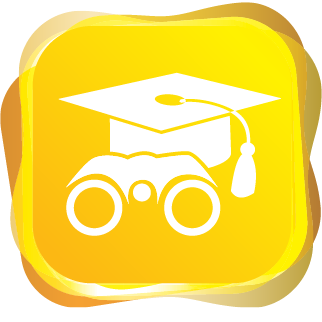 |
CCHU9066 Arts and Humanities
|
Course Description
This course addresses core aspects of human learning. Together, we will explore how we learn social concepts, language, and patterns in the world throughout our lifespan. We will investigate how and to what extent different types of learning mechanisms develop, and, finally, we will consider how learning can help us to survive and better interact with others and with our rapidly changing society. By examining different types of social and cognitive learning, students will gain critical understanding of the nature of human learning as well appreciate the interactive nature of human beings by better understanding the links between learning and society.

Course Learning Outcomes
On completing the course, students will be able to:
-
- Scientifically explain how the process of human learning works.
- Demonstrate an understanding of how learning can change human lives.
- Discuss the relationship between cognitive and social learning.
- Support their own perspectives of human learning by drawing on relevant developmental, neural, and computational evidence.
Offer Semester and Day of Teaching
First semester (Wed)
Study Load
| Activities | Number of hours |
| Lectures | 24 |
| Tutorials | 8 |
| Reading / Self-study | 47 |
| Fieldwork / Visits | 10 |
| Assessment: Essay / Report writing | 10 |
| Assessment: Poster presentation (incl preparation) | 13 |
| Assessment: Fieldwork journal writing | 15 |
| Total: | 127 |
Assessment: 100% coursework
| Assessment Tasks | Weighting |
| Questions for reflection | 20 |
| Group project | 20 |
| Research project | 50 |
| Tutorial participation | 10 |
Required Reading
Introductory reading for cognitive and social learning
- Kosslyn, M., & Rosenberg, D. (2007). Fundamentals of psychology in context. Stanford University. [Chap. 7]
Introductory reading to explore special properties of human learning
- Thorndike, E. (1911). Animal intelligence: Experimental studies. The Macmillan Company. [Chap. 1]
Perception
- Root-Bernstein, M., & Root-Bernstein, R. (2011). What’s the Pattern? From https://www.psychologytoday.com/us/blog/imagine/201103/what-s-the-pattern
Meeting of the minds
- Gopnik, A., Meltzoff, A. N., & Kuhl, P. K. (1999). The scientist in the crib: Minds, brains, and how children learn. New York: William Morrow & Co. [pp. 23-59 ‘What Children Learn About People]
Culture
- Comrie, B. (N. d.). Language and Thought. From https://www.linguisticsociety.org/resource/language-and-thought
Child Development
- Wood, K. C., Smith, H., & Grossniklaus, D. (2011). Piaget’s stages. From https://www.saylor.org/site/wp-content/uploads/2011/07/psych406-5.3.2.pdf
Language I – acquisition in early stages
- Chatham. (2006). Language Acquisition Devices vs. Domain-General Mechanisms. From http://develintel.blogspot.hk/2006/10/language-acquisition-devices-vs-domain.html
Course Co-ordinator and Teacher(s)
| Course Co-ordinator | Contact |
| Dr Y. Do School of Humanities (Linguistics), Faculty of Arts |
Tel: 3917 8603 Email: youngah@hku.hk |
| Teacher(s) | Contact |
| Dr Y. Do School of Humanities (Linguistics), Faculty of Arts |
Tel: 3917 8603 Email: youngah@hku.hk |

